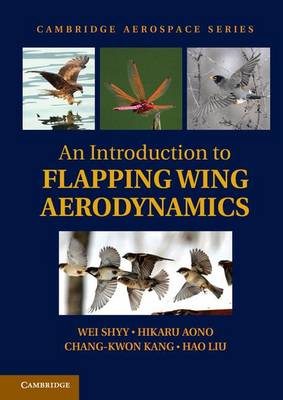Cambridge Aerospace
3 total works
An Introduction to Flapping Wing Aerodynamics
by Wei Shyy, Hikaru Aono, Chang-Kwon Kang, and Hao Liu
Published 1 January 2013
This is an ideal book for graduate students and researchers interested in the aerodynamics, structural dynamics and flight dynamics of small birds, bats and insects, as well as of micro air vehicles (MAVs), which present some of the richest problems intersecting science and engineering. The agility and spectacular flight performance of natural flyers, thanks to their flexible, deformable wing structures, as well as to outstanding wing, tail and body coordination, is particularly significant. To design and build MAVs with performance comparable to natural flyers, it is essential that natural flyers' combined flexible structural dynamics and aerodynamics are adequately understood. The primary focus of this book is to address the recent developments in flapping wing aerodynamics. This book extends the work presented in Aerodynamics of Low Reynolds Number Flyers (Shyy et al. 2008).
Aerodynamics of Low Reynolds Number Flyers. Cambridge Aerospace Series.
by Wei Shyy, Yongsheng Lian, Jian Tang, Dragos Viieru, and Hao Liu
Published 1 January 2008
Aerodynamics of Low Reynolds Number Flyers
by Wei Shyy, Yongsheng Lian, Jian Tang, Dragos Viieru, and Hao Liu
Published 22 October 2007
Low Reynolds number aerodynamics is important to a number of natural and man-made flyers. Birds, bats, and insects have been of interest to biologists for years, and active study in the aerospace engineering community, motivated by interest in micro air vehicles (MAVs), has been increasing rapidly. The focus of this book is the aerodynamics associated with fixed and flapping wings. The book considers both biological flyers and MAVs, including a summary of the scaling laws which relate the aerodynamics and flight characteristics to a flyer's sizing on the basis of simple geometric and dynamics analyses, structural flexibility, laminar-turbulent transition, airfoil shapes, and unsteady flapping wing aerodynamics. The interplay between flapping kinematics and key dimensionless parameters such as the Reynolds number, Strouhal number, and reduced frequency is highlighted. The various unsteady lift enhancement mechanisms are also addressed.

